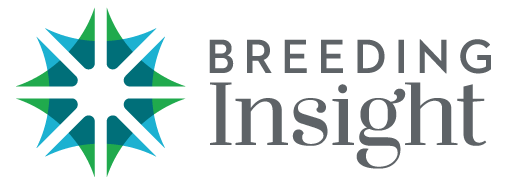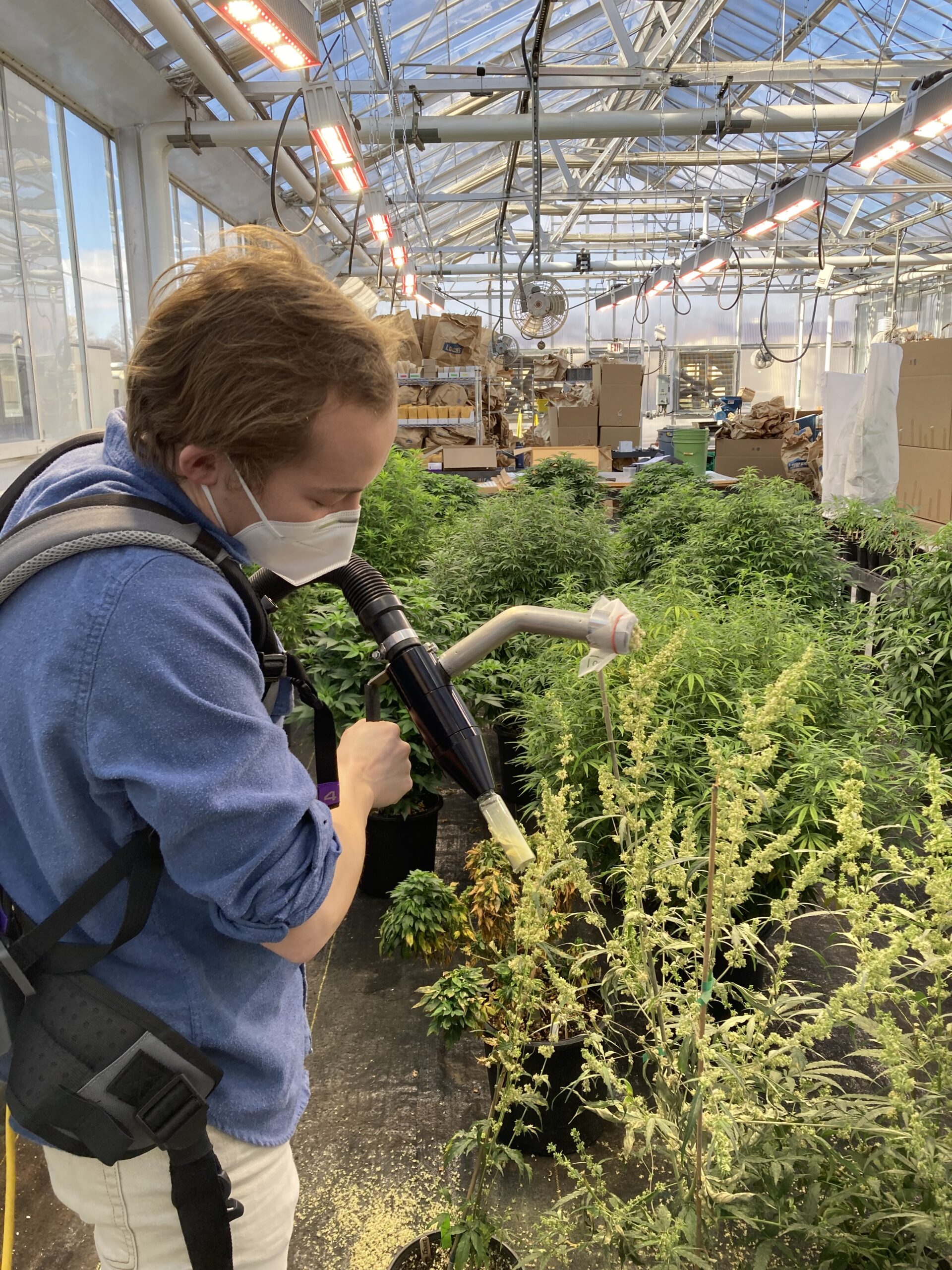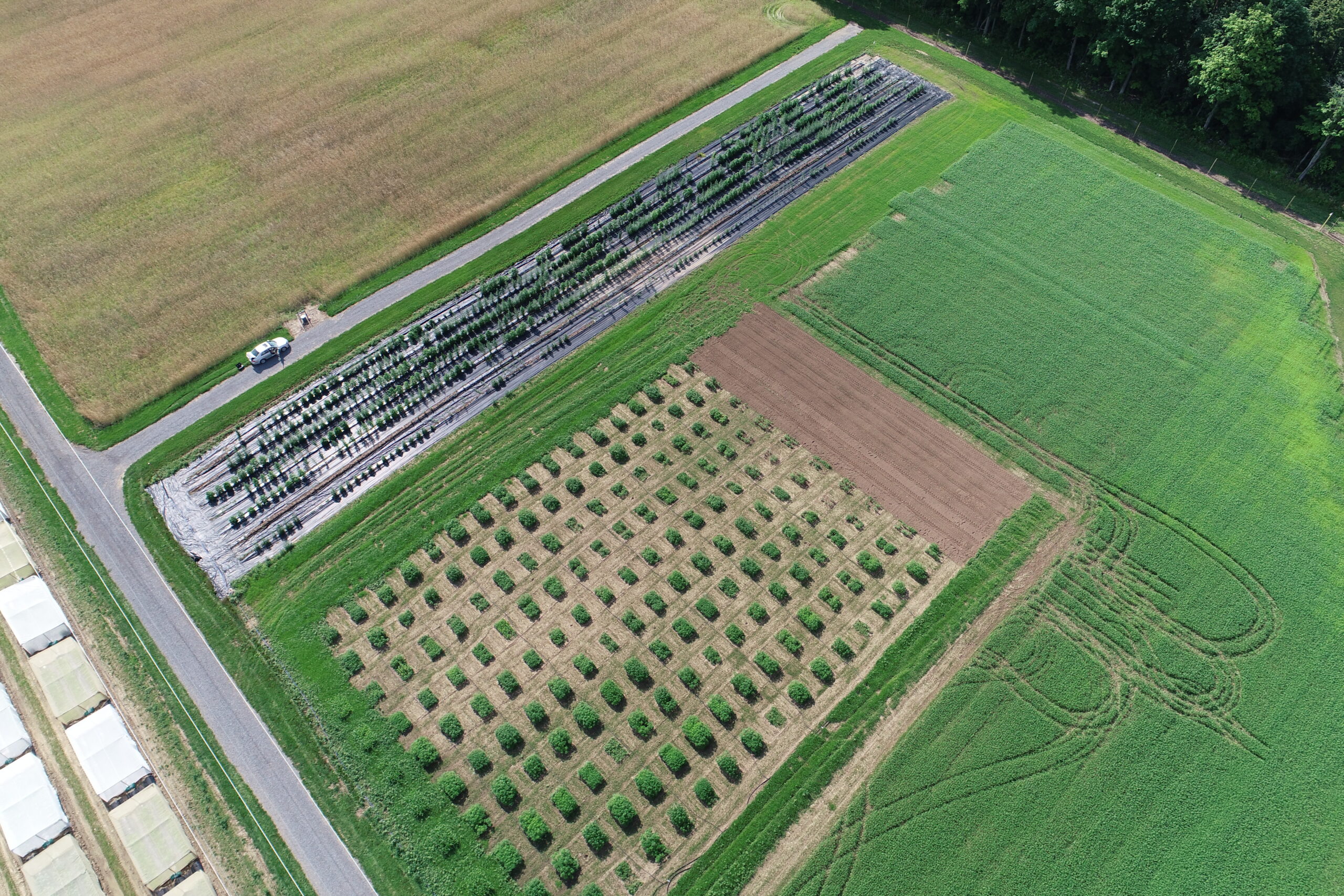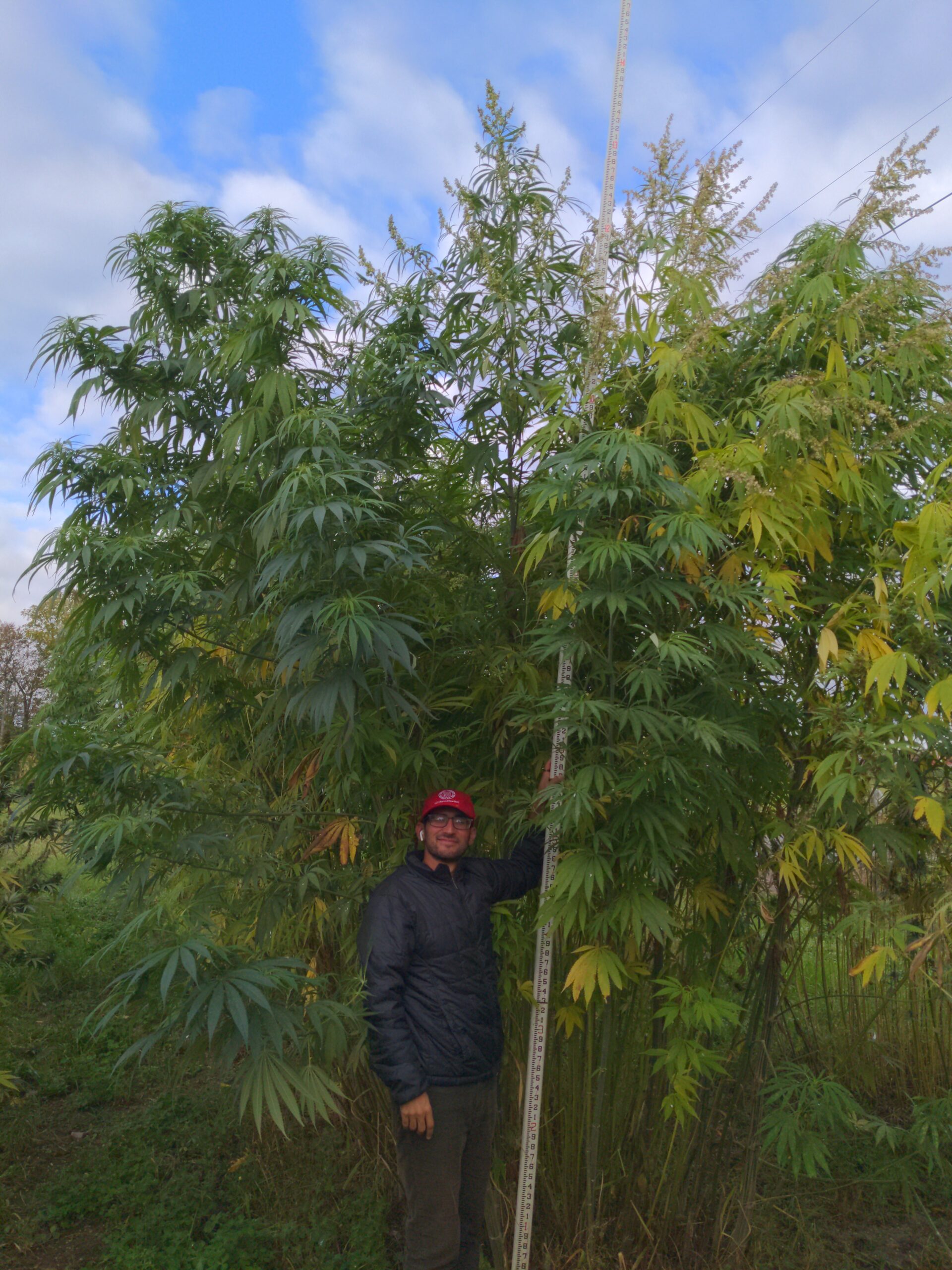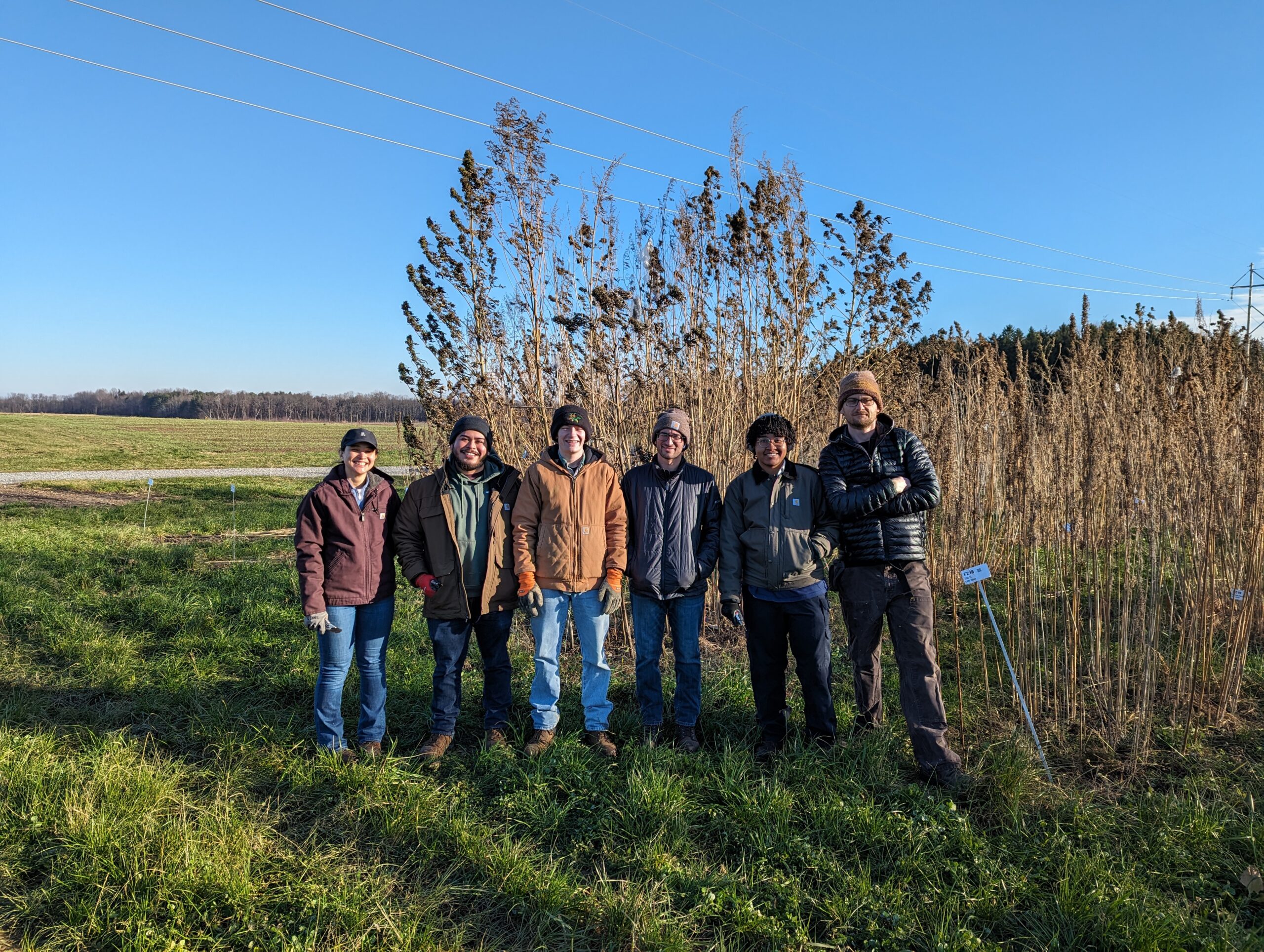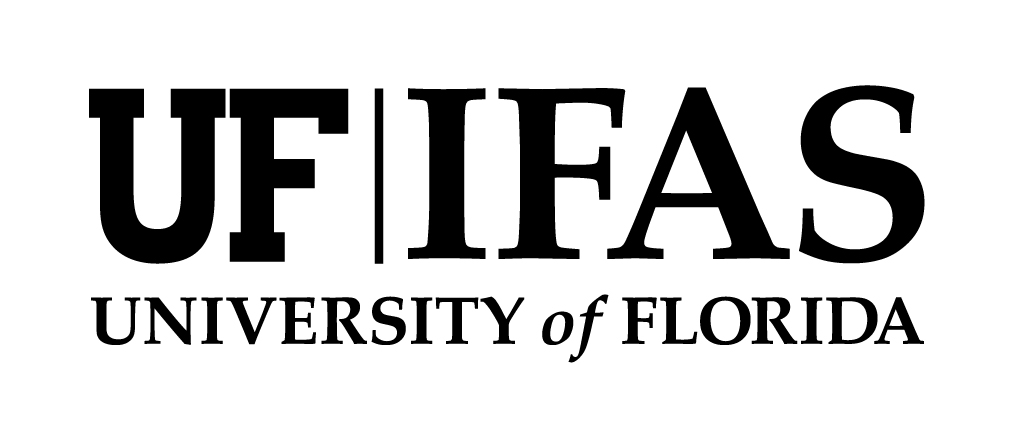The USDA-ARS PGRU hemp germplasm and breeding laboratory was started in 2021 in Geneva, NY with two foci, germplasm and breeding. The germplasm focus is to acquire, conserve, evaluate, and distribute diverse hemp germplasm. The breeding focus is to develop uniform and stable germplasm that is regulatory compliant and can be utilized by other U.S. and global hemp breeding programs to enhance agronomic potential.
As a genebank, we are acquiring new germplasm for the collection and now hold nearly 700 unique accessions from over 36 countries. Currently, most of PGRU’s hemp breeding efforts are best characterized as pre-breeding activities. Two high-priority breeding goals are: 1) inbred lines development, and 2) bi-parental F2 mapping populations to enable identification of loci that are linked with priority traits. Greenhouse and growth chamber inbreeding and selection happen continuously.
At our location, hemp can be directly sown in the field from mid-May to mid-July. We employ a variety of experimental field designs (single plant, low density, high density, etc.). Currently, critical traits under selection include selection for low total THC (e.g., germplasm is regulatory compliant, the total THC content < 0.3%), stand emergence, plant architecture, seed shattering, seed size, thousand seed weight, seed protein and fatty acid content, and fiber and hurd quantity and quality. We periodically update the Hemp Phenotyping Handbook (https://www.ars.usda.gov/northeast-area/geneva-ny/plant-genetic-resources-unit-pgru/docs/hemp-descriptors/) as a phenotyping resource for the hemp community.
Our primary strengths include acquiring, conserving, evaluating, and distributing diverse hemp germplasm. Our team is strong at conducting field phenotyping evaluations. We have many collaborative relationships that provide agronomic trails in multiple locations (WA, OR, CA, AL, LA, NY), secondary metabolite, seed, and fiber quality data. This data is used to information pre-breeding selections and is made publicly available on GRIN-Global. From 2023 onward, our group has begun collaborative efforts to screen diverse hemp germplasm for four important diseases. We provide genetically diverse plant tissues to many laboratories investigating niche topics (e.g., seed mycotoxins, inputs for industrial chemical biosynthesis, mycorrhiza interactions, exotic root compounds). We are collaborating with the HudsonAlpha Institute to genotype approximately 500 accessions in 2024. In addition, George Stack has started in our lab as a postdoctoral researcher and he brings a substantial amount of bioinformatic and genomic abilities to our team.
